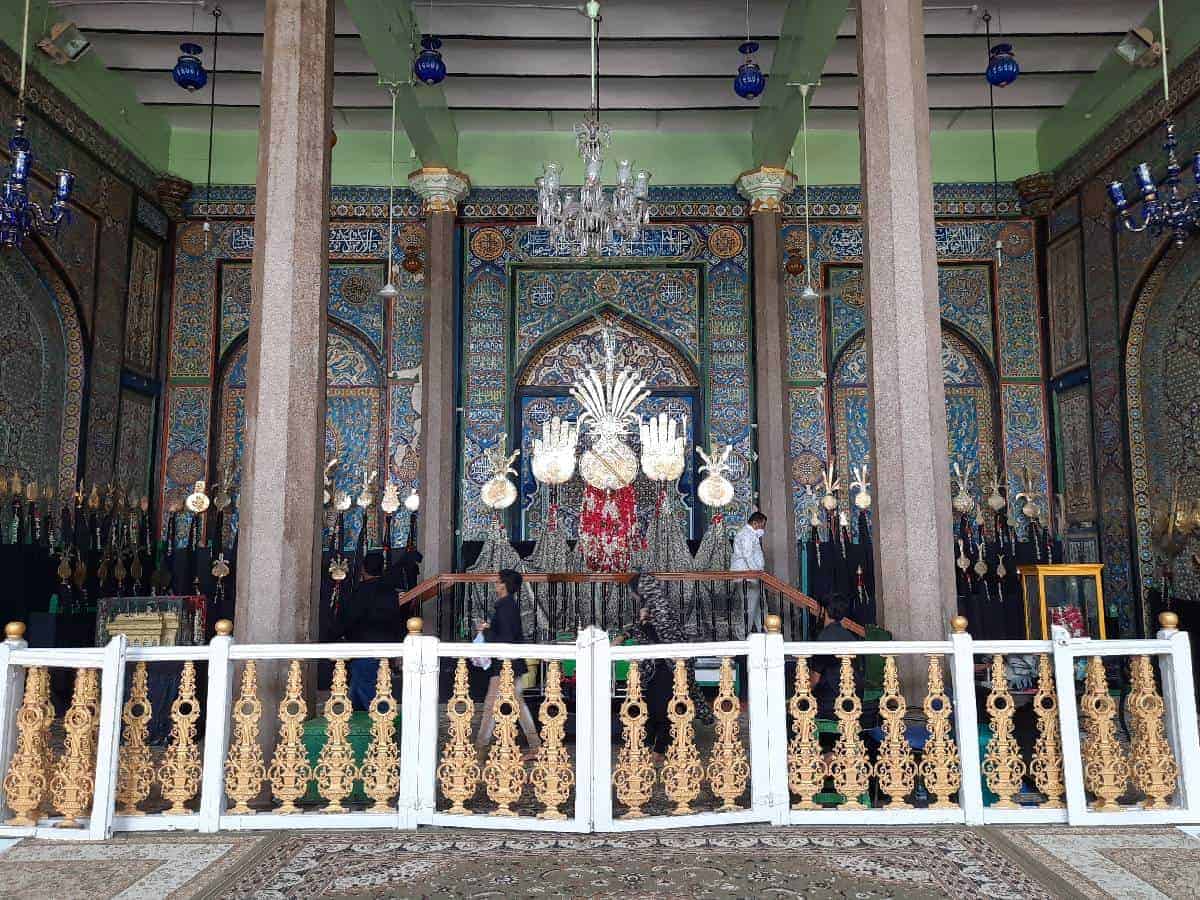Hyderabad: Will the historic annual Muharram procession of Hyderabad not happen for the first time in the history of the city? Things seem to be moving towards that direction, as the city administration is unlikely to give the green signal for the gathering due to the ongoing coronavirus (COVID-19) pandemic. Thousands of Shia Muslims and others converge annually in the Old City and participate in the gatherings, some of which have been going on from well over four centuries.
So far, however, the city police and Wakf officials, who held meetings with Muslim religious heads earlier this month, have remained mum on the issue. Though the Telangana State Wakf Board (TSWB) has issued guidelines on do’s and don’ts for managing committees of Ashurkhanas (places where congregations and the annual processions are held), it is unclear whether the permission for the annual procession will be given for the 10th day of Muharram (August 30).
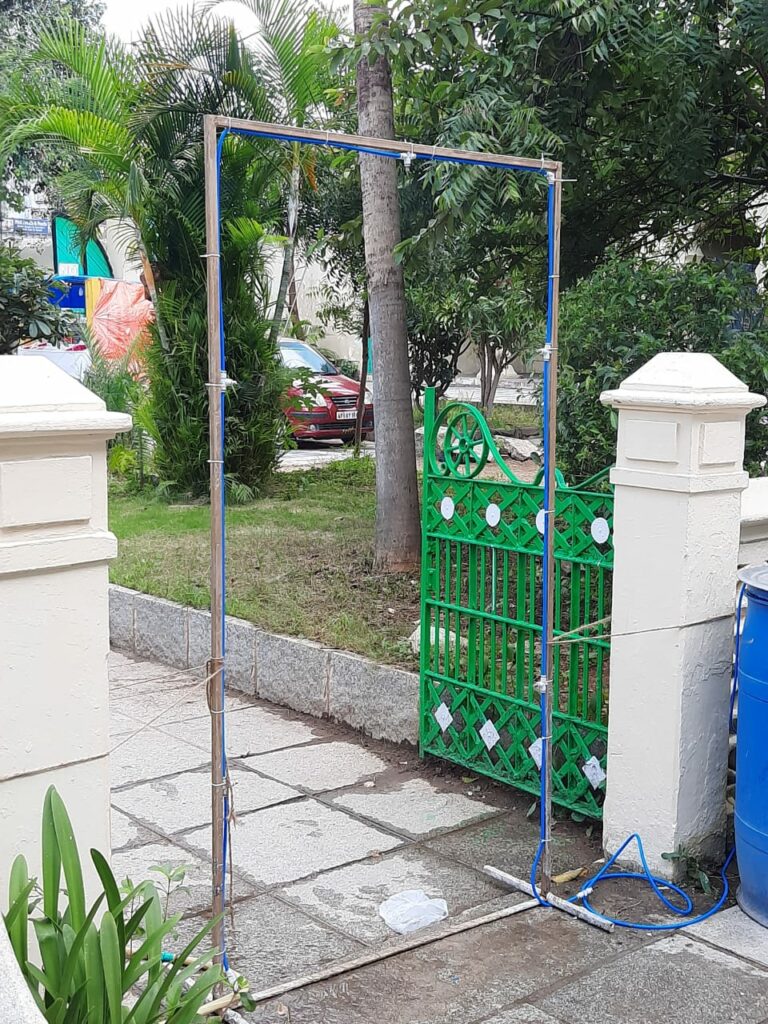
The procession of the Bibi ka Alam is the largest one in the city that begins from Dabeerpura and goes around Charminar before ending at Chadarghat Bridge. Members Muslim community are hoping that it will be allowed with only a limited number of people at least if not anything else.
As of now, the installations of Alams (sacred symbol) and the performance of certain rituals within the confines of Ashurkhana (place of mourning) have been permitted by the state government. That too, provided they follow certain guidelines issued by the TSWB on behalf of the state and central governments.
These instructions include enforcing the minimum distance of six feet as well as the usage of masks, making sanitiser available on the premises, announcing do’s and don’ts for worshippers via loudspeaker, and management committees designating the particular number of devotees at asthanas and majlis gatherings, among others.
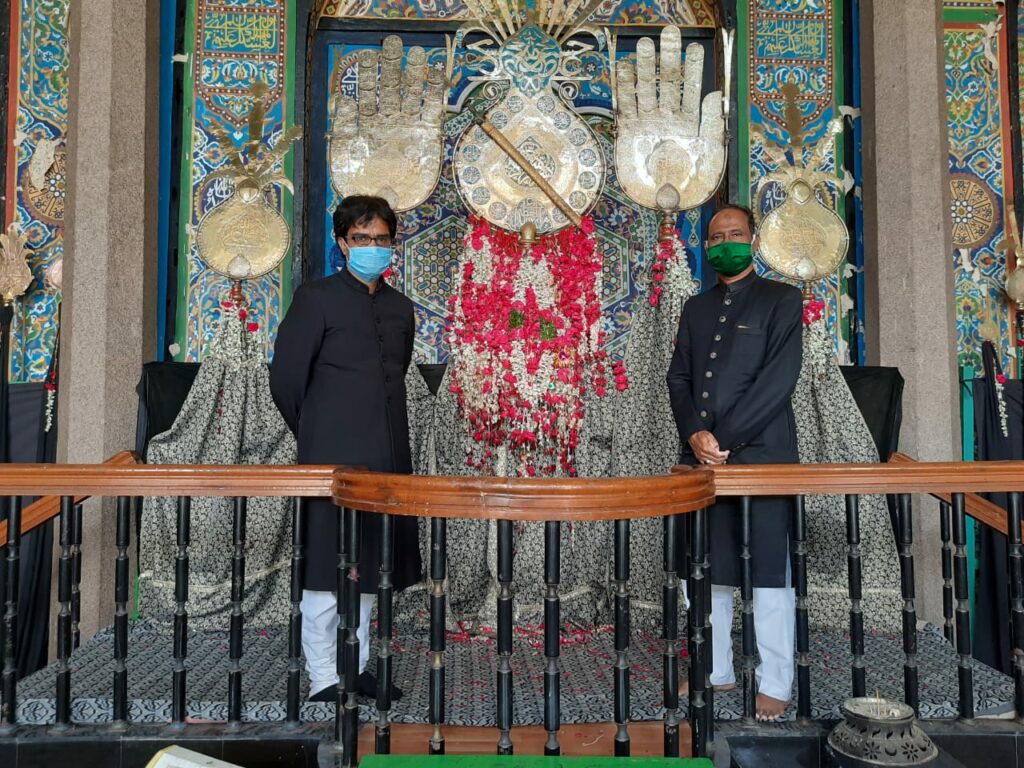
Right: Mutawalli, Abbas Moosvi
Mir Abbas Ali Moosvi, Mutawalli of the Badshahi Ashurkhana (the oldest such place in Hyderabad, built in 1593) said that they had begun putting in place the social distancing norms right when restrictions were relaxed. “Be it the shower tunnels at the first entrance of the religious structure or designating someone with a hand sanitiser bottle, we had it,” he added.
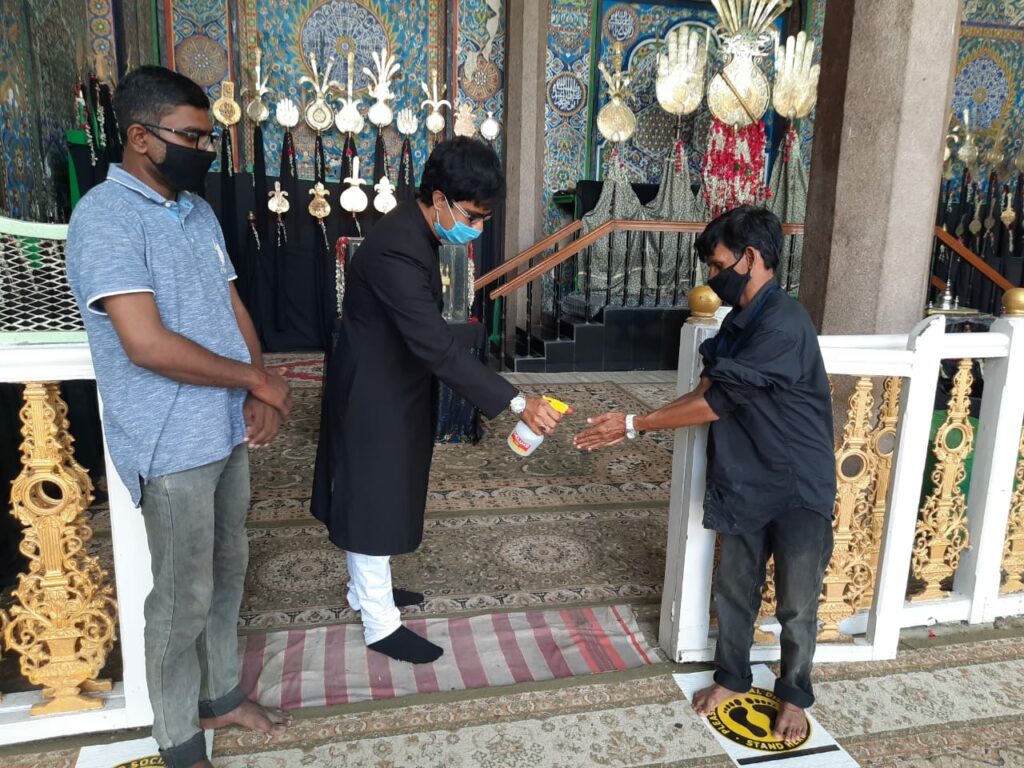
“We understand that there is a pandemic, but the Muharram processions have been going from over 400 years. The authorities conducted a meeting with all of us and had promised to inform us after making a decision. That was two weeks ago, and nothing has been communicated to us even though Muharram has started,” said a Mutawalli from one of Hyderabad’s Ashurkhanas, who did not want to be quoted.
A senior official from TSWB, preferring to remain anonymous, said that while they are awaiting for the city police to get back to them on the issue, it is unlikely that permission for the procession will be given. Hyderabad City police commissioner Anjani Kumar had also earlier this month tweeted, “Do Matam of Muharram at home. Similarly, all Ganesh pooja has to be done at home. No idol installation or any event will be held at public places as directed by the government. Keep yourself and the city safe.”
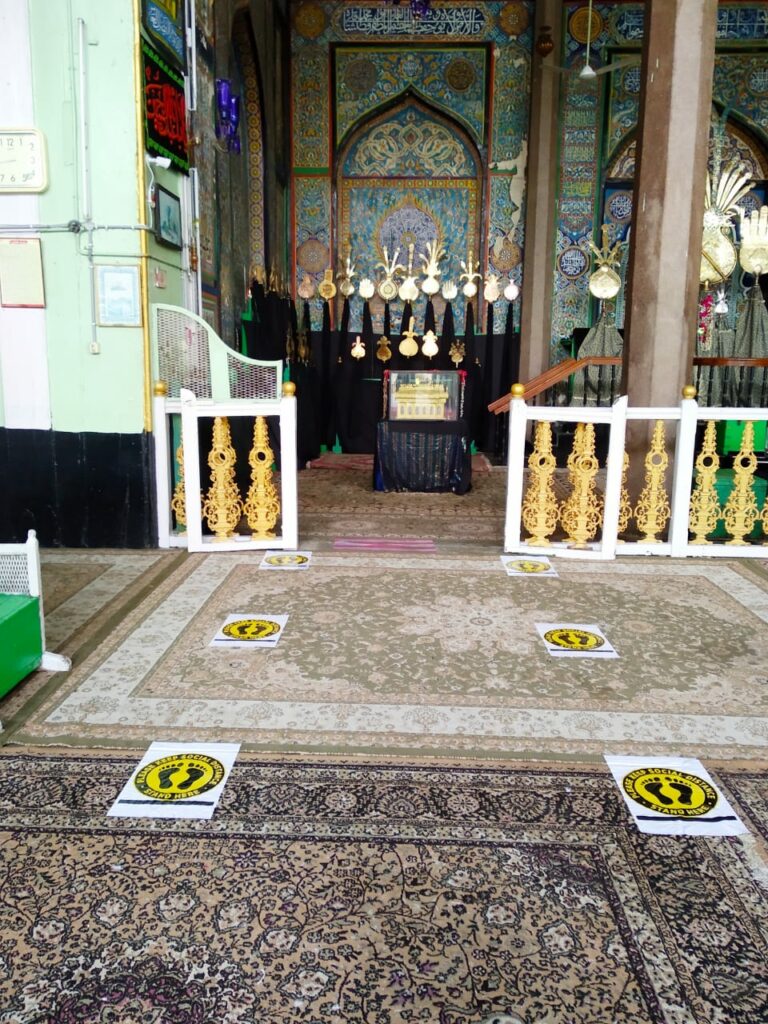
It is an old tradition
In the late 7th century, Imam Hussain, one of the grandsons of the Prophet, was martyred in a Karbala in Iraq in a dispute over succession. Hussain had contested the declaration of Yazid Bin Mu’awia as the successor caliph of Islam.
Hussain’s martyrdom took place on Ashura, the 10th day of the first Islamic month of Muḥarram. It is his death that the Muslims mourn during the month, which culminates in a major procession. The procession includes the “matam” (mourning with chest-beating and flagellation). The mourning takes place in Ashurkhanas which host sacred symbols known as Alams, reminding people of the battle of Karbala where Hussain was martyred along with his 72 family members and supporters. The family members included young children.
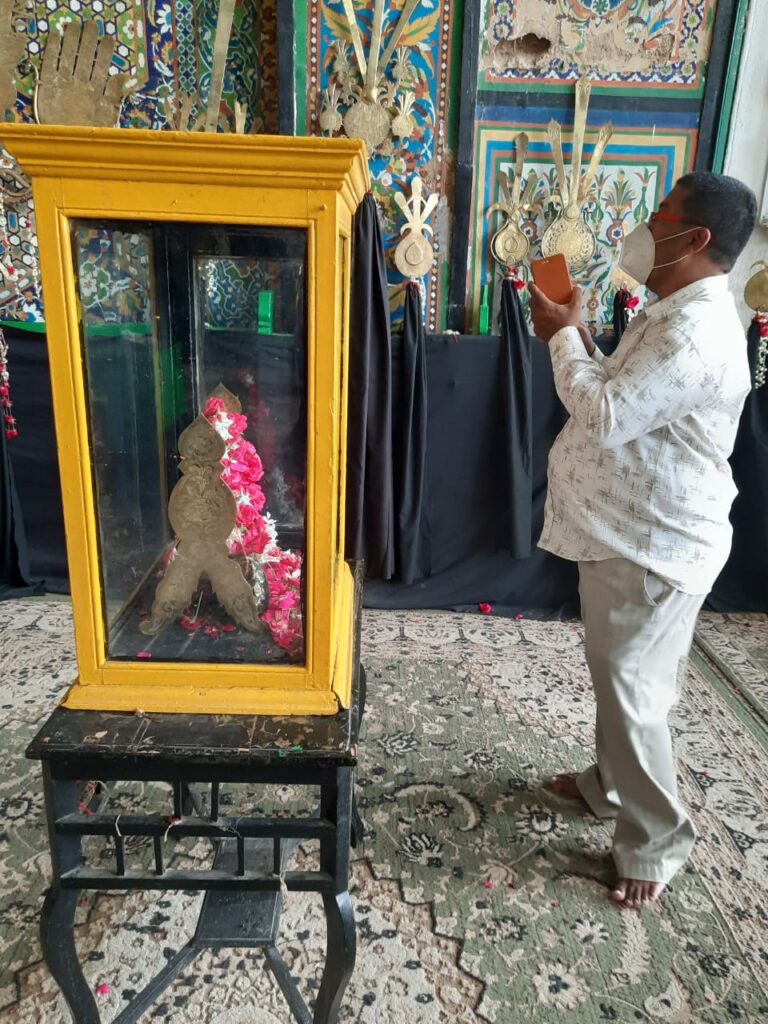
The tradition of the processions in Hyderabad are said to be the most popular along with those in Lucknow. The tradition of processions was established by the Qutb Shahi kings (1518-1687), who were Shia Muslims. The fourth of them, Mohammed Quli Qutb Shah, had built the Badshahi Ashurkhana in 1593, two years after he founded Hyderabad in 1591.
Moreover, the Qutb Shahi kings also appointed local Hindu families as caretakers of Ashurkhanas. Muharram is observed in Telangana by Muslims and Hindus alike. The tenth of Muharram or Yaum Al Ashura is known in Telugu as ‘Peerulu Pandaga’.

